Hallucinations, a blog about writing, trains, and Wire to Wire
Viewing Entries From: January 2013
Inside Job
Sometimes it's too cold to write in the treehouse. Even in the low 40s, the space heater will warm it up pretty good. But when the temperature drops below that, I write inside.
A few weeks ago, the Sucker Lake News (I think that's what the publication is called) did a nice little story on the grant I won and ran a picture of my indoor writing space. You can see the conga that I keep to my right, in case any time needs to be wasted playing repetitive rhythms.
(The photographer placed a copy of W2W on top of the drum. When I first got the conga, I made a hard and fast rule that it would never be used as a table. It's a musical instrument, after all, and nothing should be placed on top of it. I make exceptions for books, CDs, unopened mail, dirty clothes, power cords, credit card receipts, manuscript pages, notebooks, tax files, hats, postcards, stuff I've brought home from work, and other, smaller drums. However, I draw the line at placing dirty dishes on top of the conga. Those go on the floor.)

What you can't see in the photo are all the other, uh..totems that I keep on my desk for good luck or inspiration. The treehouse desk, by necessity, is bare. It's too small to collect crap. But the indoor writing space is a magnet for that kind of stuff.
So for the next few blog entries, I thought I'd share some pictures of a few things I keep around me. Starting with these.

These two tin plates are Loteria pictograms I got from Tesoros in Austin. La Calavera is The Skull, although to me the image is more about death. El Corazon is The Heart. These are on the shelf right in front of me, and I look up at them frequently when I get stuck. Basically they tell me, Remember that the stakes are high. Remember to write from the heart. I need to remind myself of that a lot.
Brave on Laura’s page
Laura Stanfill is a novelist, editor, blogger, and founder of Forest Avenue Press. She's also the force behind Brave on the Page, an anthology featuring 42 Oregon authors sharing their thoughts on craft and creativity.
A couple weeks ago, Laura pulled off an amazing event at Powell's City of Books in Portland, drawing 150 people on a Monday night to hear nine Brave on the Page contributers. The evening was a blast, featuring readings and a panel discussion. I was proud to be part of it, (despite the fact that there was a lot of talk on the panel about me not knowing how women pee when they're in the shower, posture-wise. I promise to get that right in my next book.)
Laura has a recap of the evening here that I won't repeat, but you should check it out along with the rest of her site. And writer and designer Gigi Little, who read at the event, summed it up this way:
"I think Laura Stanfill has something really special going with Forest Avenue Press, and the support she's gotten says loads about not only Powell's and the writing community in Portland but also - and most of all - Laura's energy, ingenuity, and smarts."
I just want to second that -- especially the part about energy, ingenuity, and smarts. Thanks, Laura, for having the vision to imagine Brave on the Page in the first place. And for all the hard work and creativity involved in making it real.

The next Brave on the Page event is at The Artist Edge Salon in Sandy, Oregon on January 27, with the terrific lineup of Laura, Stevan Allred, Martha Ragland and Liz Prato. If you're in Oregon, don't miss it.
Unfair in my favor
Confession: I used to be a big Survivor fan. When Zane was young, we’d watch as a family. Sure, each show had a healthy dose of reality-show hoo-hah, but there was also strategy involved. Each week, we'd have some good pre- and post-show debates about whose mojo was working and who was toast.
The craziest part of every season was always the final tribal council, when the two remaining survivors had to answer questions from the outcasts. Inevitably, one of the questions would be, Why do you deserve to be in the final two?
In the four seasons I watched, no one ever answered that question honestly. The responses always had to do with playing the game fair but hard, being true to their values, etc., etc. No finalist ever looked at the camera and admitted what was glaringly obvious: I got lucky. I could’ve been voted off a bunch of times, but the key challenges broke my way, and things worked out.
Instead, it was always about their work ethic or their dedication. In the living room, I’d be calling the posers out. “C’mon, man. It’s 60, 70, maybe 80 percent luck. You stumbled on the Immunity Idol! Michael fell in the fire! That’s called catching a break. Just say it.”
And that pretty much sums up how I feel about being awarded an Artist Fellowship by the Oregon Arts Commission recently. I’m honored, of course. Very much so. And yes, I was dedicated and played the game fair but hard, etc., etc. But so did a whole lot of other very talented people. This time around, I was the one who caught the break. Next time, someone else. Like with a lot of things, you put your name in, and sometimes you get selected.
Or as Zane used to say, back when we were handicapping survivors, life is unfair, but sometimes it’s unfair in your favor.
The Fellowship will help me as I take some time off to work on Dogs Run Free. And the recognition means a great deal to me. Saying that I know I got lucky doesn’t mean I don’t take it seriously. It means I’ll work hard to live up to it.
__________________
You better watch what you do. "You Got Lucky" by Tom Petty and the Heartbreakers.
Viewing Entries From: November 2012
Astounding Reports From Everywhere
As a writer, I’ve been fascinated by the fundraising emails and pitch letters I’ve received during the presidential campaign. They're especially interesting when you take the politics out and look at them purely from the point of view of craft.
These pitches have changed a lot over time, but the essential requirements remain the same. They have to grab you immediately. They have to connect emotionally. And they must convince you to take action. Those first two imperatives also apply, in a different way, to writing fiction.
In my files I have hard copies of fundraising letters from the 2000 presidential campaign—one from George W. Bush, which was actually addressed to my neighbors (sorry guys—I didn’t think you’d mind if I kept it) and one from Al Gore, which was addressed to me. I’ve studied them from time to time, running them through Word Count, looking at words per sentence, sentences per paragraph, the Flesch Reading Ease score, and the Flesch-Kincaid Grade Level score. Both letters seem nearly perfect to me, and I still use them as models when I need to write similar (though non-political) letters at what I call my day job.
A couple things stand out as I look at those letters now. One, they’re long—several pages each. And two, they were delivered by snail mail. What the hell were we thinking back in 2000? We still read stuff on paper?!?
In contrast, this year’s emails from the Obama campaign were marvels of concision. They came with perfectly conversational subject headers and rarely sounded canned, though of course they were. Sometimes, three would come in a single day. Maybe I have a high tolerance for this sort of thing, but it never bugged me, and the call to action worked on me more frequently than I expected. Maybe Romney was sending out great stuff too—I don’t know; I still get my neighbor’s mail once in a while, but the Internet never sends me his email—but it strikes me that the Obama email campaign will be used as a model for years to come.
Yet none of these modern pitches can even come close to the one I’ve saved from 1972. It’s a Western Union Mailgram from George McGovern. It arrived in early November, and though Nate Silver had not yet been born, we all knew the cause was pretty much lost at that point. At yet the Mailgram did its job of creating hope.

GETTING ASTOUNDING REPORTS FROM EVERYWHERE, it read. MASSIVE SHIFT AWAY FROM NIXON TOWARD OUR TICKET.
For sheer jaw-dropping amazement, look at the call to action. No “click here to donate,” no prepaid return envelope. They were asking me to go down to the freaking post office to wire money! Would that approach even raise a dime in today’s world?
Another thing I notice, reading it now, is that it wasn’t true. There was no massive shift. And I’m guessing McGovern, Frank Mankiewicz, or Gary Hart or whoever composed these sentences knew it at the time. Which, in fairness, makes me reluctant to pile onto FOX News and the Romney campaign for pretending to be winning when they knew they weren’t. Democratic or Republican, losing campaigns always put on a brave face. What else would you expect them to do?
I was a student at Antioch College when I got this Mailgram—which means I was young, an idealist, maybe a little naïve—but I was still well informed enough to read, as Nate Silver tweeted the other night, “On The Wall, The Writing.”
In other words, some part of me knew Nixon had it in the bag. But I walked down to the post office anyway, and I sent George McGovern twenty-five dollars. There was no election eve telecast, and history has not yet saluted me. The act of giving the money was its own reward. Sending it drew a miniscule connection between me and a man I admired, a man whose memory I honor more than ever. I’ve never regretted it for a moment.
Time moves on, of course. Those much-admired Obama emails were brilliantly constructed and yes, they worked like a charm.
But if you still have one 40 years from now, let me know.
Rose Rose
Rose is one of my favorite characters in W2W. At one point, she stands up. I might have said she took to her feet, but instead I wrote “Rose rose.”
The sentence is one of my favorites. In fact, I have frequently joked with noted humorist and Sherman Alexie defender Zane Sparling that I wrote the 193 pages preceding that sentence and the 199 that follow simply to make a place for “Rose rose.” That the whole 20 years I spent on W2W was about building a home for that sentence. And while that’s not quite true, the sentence does have roots that go back to the beginning of my writing life.
The inspiration for “Rose rose” came from an early Richard Ford novel—The Ultimate Good Luck, I think, or maybe A Piece of My Heart. As I recall it, there’s a sentence in one of those books that goes something like this: “She took a drink of her drink.”
I remember how that sentence stunned me. A lot of Ford’s sentences stunned me, of course, but that one especially lit up my brain. Here was Richard Ford—a writer’s writer, everyone said—using the same word twice in one short sentence. She took a sip from her drink, or she took a drink from her glass, or simply, she took a drink all would have served, but Ford consciously and assertively decided that “drink” was exactly the right word, both times, and so he used it both times—in full defiance of all bugaboos and small-minded prohibitions.
Wow, I thought. I want to do that. And later—much later—when it came time for Rose to stand up, well, the opportunity arose.
It is, I acknowledge, kind of a showy sentence. When Tin House got the manuscript, I wondered whether Tony Perez and Meg Storey, two brilliant editors who worked on W2W, might put a red pen to it. But “Rose rose” survived unscathed—partially or maybe mainly because the scene deserved some showiness. By standing up at that particular instant, Rose lay claim to Lane’s affection and took control of a situation that might otherwise have gone differently. So I like to think it was earned—though, honestly, I would have tried to sneak it in anyway. I mean, how often do you get a chance to imitate Richard Ford, even approximately?
The truth is, I’ve always had a high tolerance for repeated words and a somewhat low tolerance for people who complain about them, particularly between 8:30 and 5:00 on weekdays, when I often find myself writing for people with very specific communication needs—people who sometimes refer to my efforts as “wordsmithing” or “supplying the verbiage.” I have not killed any of these people yet, which I think testifies to my good nature and to the fact that they are paying me. Some of these critics, I understand, do not approach writing with the same energy and passion as fiction readers. Poor schools, misguided parenting, or just plain bad luck has caused them to regard writing the way I regard math—as something to be dreaded, a beast tamed only through the application of rules. Most of these rules have been supplied by their seventh grade English teacher. She didn’t approve of using the same word three times in two sentences, so neither do they.
Look, I want to say to them. There is nothing in the beautiful mess you’ve made of your life that your seventh grade English teacher would approve of—and you should celebrate that. She was wrong! About everything!
If you want to hold me to her stupid rules, first clean up every other aspect of your life that she would frown upon—get that shirttail tucked in, stand up straight, wipe that grin off your face. Do you think Mrs. Graham or Tuttle or Swinehart or whomever you got saddled with (and by) would approve of your sex life, your tax situation, your propensity to eat cold cereal for dinner, or your voting record? Get all that stuff arranged to her satisfaction and then come back here and browbeat me about word repetitions. Even then I’ll be tempted to put my fist in your chest cavity and pull out whatever I find so we can watch it beat while we think up synonyms for heart. When it’s the right word, it’s the right word.
I never say any of this, of course. But sometimes I do email my tormentors the Deadbeat Tattoo.
The Deadbeat Tattoo is a piece of writing from another work of fiction that has influenced me from the start—A Hall of Mirrors by Robert Stone. It goes like this.
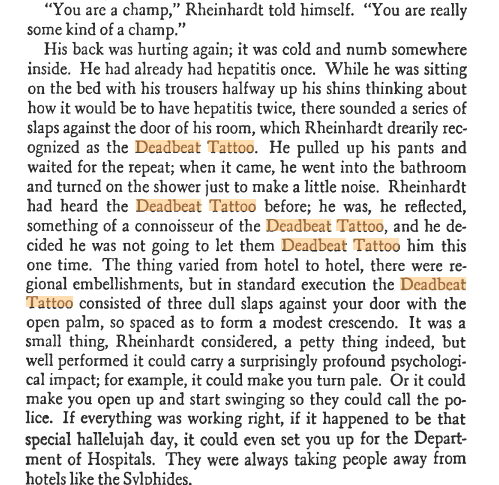
This never convinces anyone, of course—generally, it confuses them—and I always end up making the requested changes. Although that’s not quite true. It convinces me that I’m right. Five repetitions in four sentences. If Robert Stone can do it, I tell myself, so can I. And yes, I recognize that that assertion has never proven itself to be true. But the point is I can try. With as many word reps as I like. The name of my book, after all, is Wire to Wire.
______________
"Yes Yes," by Jon Dee Graham. "Talk Talk" by the Music Machine. "Rebel Rebel" by David Bowie. "Mercy Mercy" by the Rolling Stones. "Stop Stop" by the Black Keys. "Hello Hello" by Claudine Longet. Pick your pick. How about "Jumble Jumble" by The White Stripes?
Viewing Entries From: October 2012
Say What?
At my Wordstock workshop next weekend, one thing we’ll talk about is sniper dialogue—that short burst of speech in the middle of narrative that manages to totally redefine a particular moment or scene.
Writing good sniper dialogue is tough—for me, anyway—because you can’t rely on the back-and-forth interplay between characters. Everything depends on one line, or two, and then it’s back to narrative.
Since you have to do a lot with a little, there’s a tendency to overdo it. But it’s the underplayed dialogue that often works best in that situation.
One example I always think of is from Jon Raymond’s short story “Coast.”
A screenshot from "Coast" by Jon Raymond.
Three bursts of dialogue—four words, five words, three words—and the relationship between these two characters has changed.
I don’t know if I’ve ever written any really good sniper dialogue—when my characters start talking, they tend to keep talking—but I’m always on the lookout for it.
I’ll be talking about all kinds of dialogue at Wordstock in PDX on Saturday, October 14. The workshop I’m leading is called “Keep Talking.” Now that I see it in the program, though, I kinda wished I’d called it “Say What??” Regardless, there’s sign-up info and more details here.
______________________________
_____________________________
“Tyrants and kings do their usual things and you try to stay out of their way.” Listen to the sniper attack of electric guitar that animates the acoustic background of Seger’s “Won’t Stop.”
Seger: “I'm using a lot of acoustic guitar and then saving the electric stuff for these real razor solos, kind of like sneak attack songs." May 14, 1998, The Oakland Press
Quote Unquote
What do you do with a character who won’t say anything on the page? Or one who won’t shut up? I’m running a workshop on dialogue at the Wordstock Festival in PDX in a week or so. By then, I hope to find the answers to these and other questions.
I had both extremes in Wire to Wire—a character who wouldn’t speak unless you poked him with a stick and one who blabbed on for pages. The one who wouldn’t shut up was a lot more fun to write.
To get ready for the workshop, I’m making a list of things I want to address. Here’s what’s on it so far:
- Dialogue as character poetry
Characters who don’t talk
Characters who talk too much
Dialogue as story information – exceptions where it works
How many people in a scene can talk?
Found dialogue
Real vs. real-sounding vs. clever dialogue
Importance of the cut-away
Sniper dialogue
Extended dialogue
Situations where no one should talk
Story clues in dialogue
Dialogue attributions
Delillo dialogue/McCarthy dialogue
Dialogue quirks
Swearing in dialogue
Memorable dialogue
Your dialogue
Sometime in the next ten days, I’ll get an outline together to make sense of all that. With examples from Robert Stone, Bonnie Jo Campbell, Jon Raymond, Jonathan Franzen, Jonathan Lethem and maybe other people named John as well.
The workshop is on Saturday, October 13 at 4:30. It’ll be fun and maybe even helpful. You can sign up here.
_____________________
One minute and fifty-six seconds of garage rock that will never die: The Music Machine’s “Talk Talk.” Sean Bonniwell R.I.P.
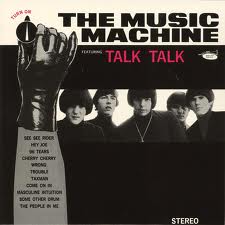
Viewing Entries From: July 2012
The Song of the Wheels
A book can take you far. In the past 14 months, Wire to Wire has taken me to Michigan three times, New York twice, and to California, Minnesota, and Washington once each. Michael Slater and I have crossed the Brooklyn Bridge, the Mackinac Bridge, and the Golden Gate Bridge on our way to readings and events.
In Michigan alone I logged more than 3,000 miles. I got my rental car stuck in the sand of Lake Michigan, got lost looking for Canada, re-met friends I hadn’t seen in 20 years, helped a desperate man contact his parole officer, and talked with a prosecutor who claimed he’s put all my characters in jail.
Since W2W was published in May 2011, I’ve done 37 readings or events, easily earning the title of The Hardest Working Man in Train-Hopping, Glue-Sniffing, Quasi-Crime-Novel Indie Lit. What else may hap, they’ll never take that away from me.
Thirty-seven stops in 14 months: Wire to Wire Book Tour
After all that, last week’s reading at the Squaw Valley Community of Writers seems like the perfect ending. I’d been a student at Squaw Valley in 1986 and 1992, workshopping early versions of W2W. I went back last week to read with six other Squaw Valley alumni and was overwhelmed by the amazing line-up of talent and the generosity of everyone there.
I owe a lot of thanks to everyone along the way, and to the wonderful people at Tin House. For now, it’s good to be back in the treehouse. The book I'm working on these days is about a guitar player with a missing finger, a banker with a missing kidney, and a woman with a missing friend. It's called AUX IN. If you see me on the streets, ask me why I'm not home working on it.
.jpg)
.jpg)
.jpg)
W2W: From the treehouse to Michigan and back in couple of short decades.
_______________
The song of the wheels is ride: Jimi Hendrix, "Hear My Train A' Comin."
Viewing Entries From: May 2012
Swimming in the Big Lake
Part two of the Michigan W2W tour starts soon. This time Zane will be with me – my son's 19, yet somehow I’ve convinced him to spend 8 days on the road with me in my home state.
We’ll visit libraries in Warren, Howard City, Curtis, and Sault Ste. Marie. When we’re not talking about Wire to Wire, Bob Seger, freight trains, or anything else that’s on your mind, we’ll be taking it easy, taking any comfort we can find. If you’re from Michigan, you know what song that’s from. And if you don’t, come out and see us and all will be revealed.
Zane hasn’t been to Michigan since he was 4, so it’s also a chance for me to show him where I grew up, near the tracks outside Jackson, Michigan.
We’ll also stop in Frankfort, which I call Wolverine in Wire to Wire. And we’ll go to the real town of Wolverine, which I call Wolvertucky in the book I’m working on now. Sure, it’s confusing, but fiction was never meant to be pretty. Or maybe it was. I’d be the wrong person to ask.
View Michigan Book Tour in a larger map
The W2W tour will stop at libraries in Warren on June 6, Howard City on June 7, Curtis on June 11, and Sault Ste. Marie on June 12.
I’m especially looking forward to reading in village of Curtis – deep in Hemingway country in the Upper Peninsula. For reasons unclear to me, the library specifically requested that I read there, and folks are rolling out the red carpet: June 11 has been declared "Train Day in Curtis." Local restaurants will serve "train wrecks" and "hobo specials.” The Community Building will feature a Train Day Show and Tell. Railroad buffs are setting up a model railroad in the library. All because someone is coming 2,000 miles to talk about a book.
June 11 has been declared "Train Day in Curtis."
Also on the sightseeing itinerary: Muskegon, Petoskey, Mackinac Island and everything else I can jam into 8 long days in the Wolverine State.
So come out and say hi. It’ll be my last trip to Michigan this year…unless Seger finishes that album and starts rocking Detroit. Until then, see you on the road. Dates and details are on the map.

Viewing Entries From: March 2012
New York, Sucker Lake, Michigan
Timing is everything. After months of working on the new book, I’m psyched to be hitting the road again for W2W, especially since the road is taking me to NY, Michigan, and my adopted hometown of Sucker Lake (which in a way, I guess, isn't really the road. But you know what I mean.)
As April begins, I’ll be taking part in the butt-kicking Animal Farm Reading Series, which is held monthly at Public Assembly in Brooklyn. The reading organizers like to point out that all reading series are created equal, but some are more equal than others. In any case, I’m thrilled to have been invited. On April 3, I’ll be reading with Bernice L. McFadden and Eliza Factor.
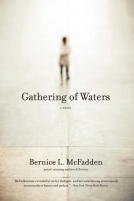

Gathering of Waters by Bernice L. McFadden & The Mercury Fountain by Eliza Factor.
A couple weeks later, I get to do the first W2W event in Lake Oswego, Oregon, which I sometimes call Sucker Lake to honor the lake’s original name. (It was named after the fish, not for the people who fell for the advertising slogan “Live Where You Play” and built their mansions on its edge.)
I’ve lived in Lake O for twenty years, wrote most of W2W in the tree house here, and yet am best known for being the father of Zane Sparling, former prodigy/humor columnist for the Lake Oswego Review. (True story: A couple weeks ago I was mailing off a copy of W2W at the Lake Oswego post office, or the LOPO as some of us call it, when a stranger saw the book and asked if I was Scott Sparling. I was getting set to autograph her hoody when she told me how much she liked Zane’s writing.) In any case, I’ll be at the LO Public Library on April 17. Maybe I can convince Zane to come.

A few nights later, on April 20, I’ll join fellow Tin House writer Alexis Smith along with Jean Auel, Emily Chenoweth, Loren Christensen, Ted Coonfield, Kim Cooper Findling, April Henry, Bart King and Barbara Roberts at HomeWord Bound 2012, a fundraiser for Community Partners for Affordable Housing at the Tualatin Country Club in Tualatin, Oregon.
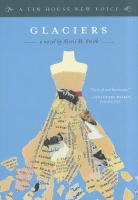
Glaciers by Alexis Smith
Then, Michigan. On April 28, I’ll be in Lansing at the official Library of Michigan for an event that means a lot to me: Notable Nights, the Michigan book awards ceremony honoring the top Michigan books of 2011. It’s an amazing thrill to be on the list along with Jim Harrison, Bonnie Jo Campbell, Michael Moore, Susan Whitall, Keith Taylor, Laura Kasischke, and more.
As part of the Notable Books program, I’ve been invited to read at the Shiawassee District Library in Owosso, Michigan, about an hour north of my biological hometown. I’ll be there on April 30. Seger fans, stop by and we’ll talk music, freight hopping, glue sniffing and anything else that’s on your mind.
Later in June, I’ll be back in Michigan again, including Detroit and a short tour of the Upper Peninsula. Can’t wait for that either.
And to get ready for all this travel: the annual trip to SXSW in Austin later this week with the incomparable Ears Two, well known to Segerfile fans. I’m looking forward to four days of Jon Dee Graham, Chuck Prophet, Alejandro Escovedo, the Black Angels, Justin Townes Earle and dozens of other bands. I’ve already made Jon Dee Graham’s “Laredo” the unofficial theme song of the next book (currently called AUX IN):
I drove home from Laredo, I had the fireflies in my head
They were lighting up a small, dark something.
They were circling round a small, dark something
They were looking for a small, dark something.
-- Jon Dee Graham
If you’re in Brooklyn, Sucker Lake, Seger Nation or Austin, shoot me a tweet or an email, or come out and say hi. It’ll be great to see you the road.
Posted in Music | Wire to Wire
Recent Posts
Archives
- December, 2017
- December, 2015
- January, 2015
- November, 2014
- April, 2014
- March, 2014
- December, 2013
- September, 2013
- July, 2013
- March, 2013
- January, 2013
- November, 2012
- October, 2012
- July, 2012
- May, 2012
- March, 2012
- February, 2012
- December, 2011
- November, 2011
- October, 2011
- September, 2011
- August, 2011
- July, 2011
- June, 2011
- May, 2011
- April, 2011
- March, 2011
- February, 2011
- January, 2011
- December, 2010
- ,
Categories
Links
- My Essay on Bloom: No Other Way Out
- Playlist in LargeHearted Boy
- A Book Brahmin Essay for Shelf Awareness
- Powell's Blog: Sex & Money
- Powell's Blog: Riding Freights
- Powell's Blog: Burning Down the House
- Powell's Blog: Bob Seger
- Powell's Blog: Thank You
- An Interview with Kathleen Alcala
- An interview with Laura Stanfill
- Video with Yuvi Zalkow
- Interview with Noah Dundas
- Tin House Blog: Motor City Fiction
- Blog on Occupy Writers
- W2W Essay for Northwest Book Lovers
- W2W Essay for Poets & Writers
- America Reads: Page 69
- America Reads: My book, the movie
- America Reads: What I'm Reading
- Interview with Be Portland
- The Oregonian: Where I Write
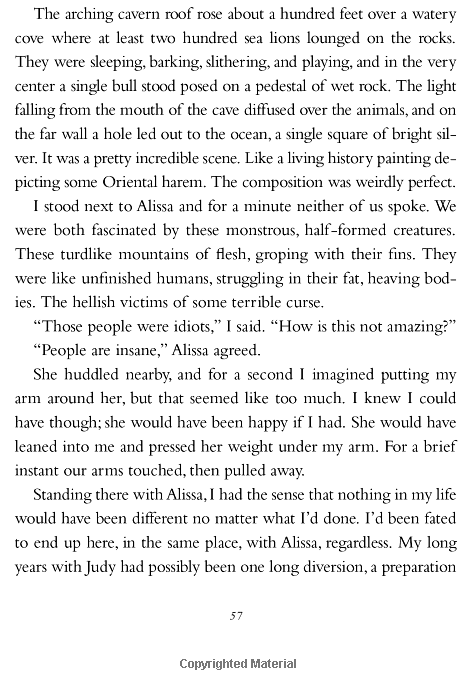

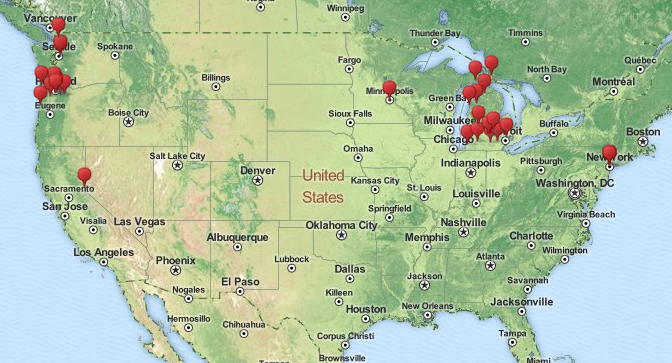
 Subscribe to the RSS feed
Subscribe to the RSS feed